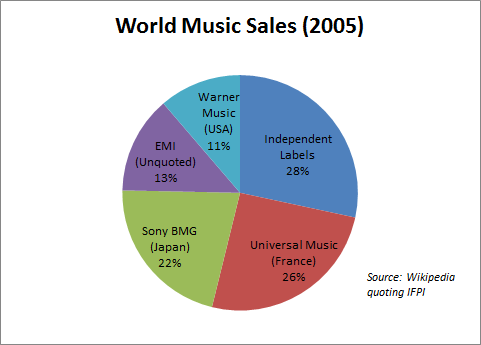Earlier this week I attended the @pictfor meeting advertised as about “Search Neutrality”. It had entered my radar when Alec Muffett who had been invited to speak, announced his attendance on twitter and his Computer World blog, “The Google Dialogues : Search Neutrality”. The speakers were Alec, and Shivaun Raff, the CEO of Foundem and Mark Margaretten, Professor at U. of Bedford. Foundem is one of the complaintants to the EU provoking an EU monopoly investigation into Google. This is covered in the Guardian, on the 20th November, in an article called “Google search investigation sparked by complaint from British site”.
Shivaun argued that Google manipulates its sort order to benefit its own alternative properties, particularly the price comparison sites. (Foundem is a vertical price comparison site.) They argue that over 90% of European search is fulfilled by Google, and that when Google chose to discriminate against them, their traffic fell off to a business breaking trickle.
Alec and Mark took a similar line to each other, Google is one click away from failure, relevance including sort order is subject to competitive pressure & no-one has a right to a place in a search engine’s sort order. Alec in his blog post points at James Grimelmann’s article,“Some Skepticism about Search Neutrality” who makes similar points, although Grimmelmann argues that vertical search sites are rarely useful or usable. Margaretten dealt with this less judgmentally by pointing out that Google also prefers sites with original content, which is why aggregator sites do less well. He reinforced the point that there are good reasons to devalue vertical search sites, although Foundem can prove that they were specifically penalised. Grimmelman distinguishes between regulating for “Search Neutrality” which he opposes and anti-trust law which he argues is different and has its own theory and practice. The meeting missed this dichotomy between monopoly regulation and search neutrality.
Shivaun Raff was backed up by a spokesperson from Streetmap, who provided some evidence that Google had manipulated their sort order when they launched Google maps in order to better compete with the established players. I hope that they have made a submission to the Commission. The talk in the bar after was that streetmap lost out due to Google Maps technical superiority particularly features such as navigation, user generated content, personal customisation and world wide coverage; however even if this is true it doesn’t necessarily mean that the allegation of malicious action is unjustified.
I’ll be interested to see if the Commission come to consider Google to be a monopoly. It dominates in search, and its maps and mail are wildly popular but it’s definitely second choice for microblogging (g+) where it’s outgunned by twitter and facebook, identity assurance where Google Profile trails behind twitter and facebook, picture blogging (Yahoo), bookmarks (delicious and reddit) and blogging (wordpress). It’s interesting to consider this in the light of some changes made by google to their user experience over the last couple of months where they are staring to build walls around their services to make it harder to share one’s data with other companies services. For instance, they have wrecked Google Reader for me since I can now only share news via Google+, there is now no open XML feed for these. I’ll explore this in another post soon. …






